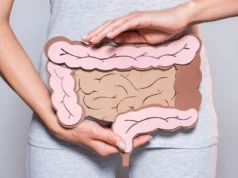
The keto diet has been making waves lately as a path to shedding pounds and supercharging overall well-being. At its core, the traditional keto diet is characterized by a high-fat, moderate-protein, and very low-carbohydrate intake. The eating plan’s main objective is straightforward: coax your body into a fat-burning mode, kicking glucose to the curb.
This metabolic state is achieved by drastically reducing carbohydrate intake, typically to around 20-50 grams per day, while increasing fat consumption to about 70-80% of total daily calories. Fat loss and improved overall health – that’s what drives people to the keto diet. The added kick: a marked improvement in blood sugar control and mental performance that you’ll be eager to experience for yourself.
Folks who’ve made the switch to this diet have been thrilled to see pounds melting away and their energy soaring. As we consider the keto diet’s wider impact, we start to see that its initial benefits come with a few strings attached, stretching far beyond the short-term highs. As you’re considering this diet, remember that the strict guidelines can lead to health problems down the line – don’t forget to factor those risks into your decision.
Potential Health Risks of Traditional Keto Diets

Despite its popularity, the traditional keto diet is not without its potential health risks. Imagine going on a diet that’s so strict, you end up cheating your body out of the nutrients it needs. That’s the risk of diet restrictions: nutritional deficiencies waiting to happen. A radical carb overhaul might feel like a fix, but it can blindside your body with nutrient deficiencies.
Case in point: fruits, whole grains, and legumes, rich in vitamins, minerals, and fiber, might be in short supply. A diet lacking variety can spell trouble for your body over time, leading to a shaky gut and a weakened defense system that’s more susceptible to illness. Stick to a traditional keto diet for too long, and you might be setting yourself up for kidney and liver damage – a risk that’s just not worth taking.
Additionally, high protein and fat intake can strain the kidneys and liver, particularly for individuals with preexisting conditions. Saturated fats, common in traditional keto foods like butter and fatty meats, have been linked to elevated LDL cholesterol levels and a higher risk of heart disease. To minimize these risks while exploring Healthy keto, consult a healthcare provider for personalized advice.
Gut Health ─ The Link Between Diet and Wellness

At the core of our bodies, a tiny ecosystem thrives, and its impact is staggering: our gut microbiome affects how we process food, fight off infection, and stay emotionally balanced. Traditional keto diets can significantly alter the composition of gut bacteria due to their low fiber content.
A ketogenic diet means less fiber because it restricts foods that are normally bursting with fiber – like juicy fruits, crunchy veggies, and hearty whole grains. By skipping out on fiber-rich foods, you inadvertently destroy the delicate balance of your gut microbiome, opening the door to obesity, diabetes, and inflammatory bowel diseases – a health trifecta no one wants to face.
Traditional keto diets, high in fat, bring an unwanted guest to the table – compromised gut health. Certain types of fats, particularly saturated fats found in animal products, may promote the growth of harmful bacteria in the gut.
An unhealthy ratio of gut bacteria can spark a downward spiral of wellness issues, like inflammation and ongoing health struggles, that are hard to shake. To mitigate these risks, individuals on a keto diet should consider incorporating low-carb, high-fiber foods such as leafy greens and avocados to support gut health while still adhering to their dietary goals.
Nutrient Deficiencies

One of the most pressing concerns regarding traditional keto diets is the potential for nutrient deficiencies. Think carbs are just empty calories? Think again. Whole grains, fruits, and veggies are teeming with essential nutrients we can’t afford to lose. For instance, vitamins such as vitamin C and several B vitamins are primarily found in carbohydrate-rich foods.
Fall short on these vitamins, and you might find yourself battling chronic fatigue, fighting off frequent illnesses, and generally feeling run down. Additionally, minerals such as potassium and magnesium are often under-consumed on a traditional keto diet. Without a steady supply of certain minerals, our bodies would grind to a halt.
Muscle contractions would cease, nerve transmissions would falter, and chaos would ensue. If you’re lacking in potassium, you might find yourself prone to muscle cramps and irregular heart rhythms, a troublesome combo.
Meanwhile, inadequate magnesium can leave you feeling drained and on edge. To address these potential deficiencies, individuals following a keto diet should prioritize nutrient-dense foods that fit within their macronutrient goals or consider supplementation under the guidance of a healthcare professional.
Heart Risk Rises with Every Tick of the Clock

Fat-rich diets like keto have cardiologists scratching their heads – will they lead to healthier hearts or heightened heart risk? While some studies suggest that ketogenic diets may improve certain cardiovascular risk factors such as triglycerides and HDL cholesterol levels, there is also evidence indicating that a high intake of saturated fats can lead to increased LDL cholesterol levels—often referred to as “bad” cholesterol.
If your LDL cholesterol is out of control, you’re staring down the barrel of a higher risk of heart disease and stroke, a reality that’s tough to face but essential to acknowledge. Fat-rich diets have a mysterious downside that becomes clearer only with time. Gorging on saturated fats can spell trouble for your heart: studies indicate a heightened risk of cardiovascular disease as the years go by.
Before adopting a traditional keto diet, check your lipid profile and consult your doctor. For heart-healthy dietary adjustments, consider exploring the Mediterranean diet or modified low-carb plans that emphasize healthy fats like olive oil and nuts. Learn more about heart health and diet at the National Heart, Lung, and Blood Institute (NHLBI).
Safe and Healthy Alternatives to Traditional Keto Diets

For those seeking weight loss or improved health without the potential risks associated with traditional keto diets, there are several safe and healthy alternatives available. To eat like the Mediterranean folk, move toward a seasonal diet built on everyday favorites: crispy fresh veggies, citrus fruits, and whole grains that satisfy, along with generous helpings of fish and healthy fats – especially olive oil – to seal the deal.
Heart disease risk plummets and cognitive function gets a boost when you follow this dietary approach, according to the latest research. If you want a diet that really hits the sweet spot, consider a low-carb approach that balances protein, fat, and carbs for steady weight loss.
Forget about fad diets! Instead, seek a carbohydrate-centric approach that showcases whole, nutrient-dense foods like legumes and whole grains, balanced by judicious servings of fats and proteins.
Forget the keto ratio obsession – eating nutrient-dense foods gets you where you want to go, minus the potential drawbacks of traditional keto diets. As you adopt a keto lifestyle, ask yourself: will the initial high wear off, leaving you to face unforeseen consequences that could impact your health for years to come?
By recognizing the potential pitfalls of dietary changes – think nutrient deficiencies, digestive woes, and heart concerns – you’ll be better equipped to make informed choices. Seeing real progress toward your health goals doesn’t have to mean sacrificing your overall well-being. Balanced nutrition is the secret to achieving that delicate harmony.













